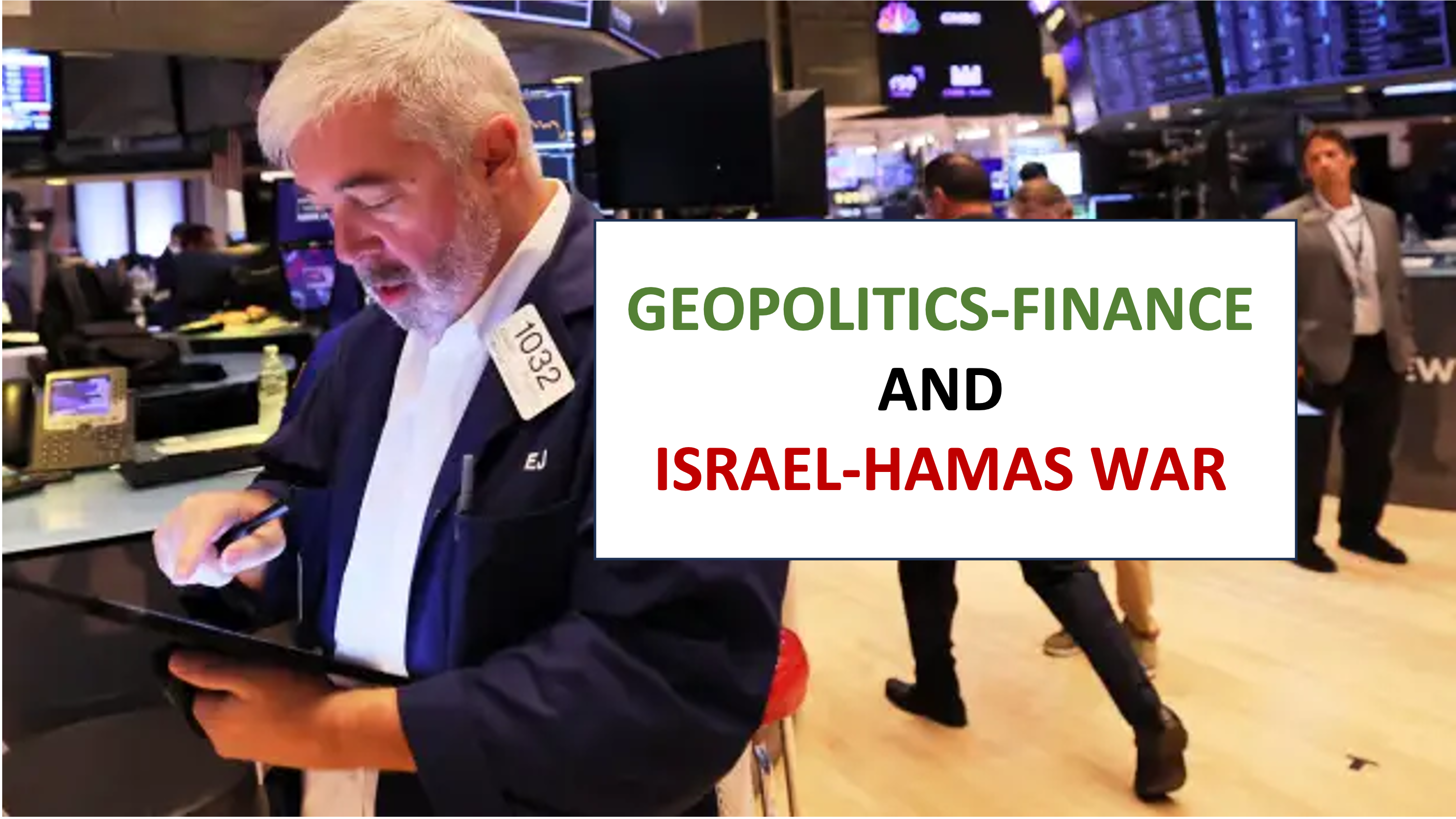

Geopolitics on Finance: Impact of Israel-Hamas war on Financial Markets
The world was shocked when conflict erupted in the delicate Middle East early this month. Investors were anxious, anticipating the disastrous consequences the conflict between Israel and Hamas might have on the world since the Middle East is such a geopolitical hotspot. In today’s Founder’s Thought, we will explore how the Israel-Hamas conflict affected financial markets.
Immediate Market Reactions
Overall, markets took an initial tank due to the geopolitical risk associated with the conflict, although most indexes did not cascade too much. However, the markets in the region, such as the Tel Aviv Stock Exchange, experienced a much greater dip as they had much more direct exposure to the conflict. Investors naturally turned cautious and invested in stable assets like gold and US Treasury Bonds. However, unlike the Russia-Ukraine war, the Israel-Hamas war did not have any scary impacts on global markets immediately following its announcement of conflict.
Long-term Consequences
Although we have not experienced any long-term consequences of the Israel-Hamas conflict, we can predict some of them. For example, if the conflict persists, it could lead to financial instability, although this effect will only be experienced locally. Depending on the conflict’s severity, the conflict could continue to impact the regional finances, leading to possible government debt and prolonged economic recession. Finally, on a global scale, the Israel-Hamas conflict could lead to changes in foreign investment strategies and trade alliances as many might reassess their portfolios to consider the economic risk posed by these regions. Additionally, we might see alterations in trade alliances, such as the United States no longer serving as Israel’s ally.
Sector-Specific Impacts
The sectors most impacted by the Israel-Hamas conflict are the defense and energy sectors. Since a vast majority of Israelian military equipment is manufactured and distributed by the United States, it is no surprise that this conflict is leading to investment in this sector. The energy sector is also continuing to change rapidly as many are unsure of the security of an oil supply from the Middle East because of concerns that Oil-producing giants, Saudi Arabia and Iran, may get involved in the religious-focused conflicts. The energy sector is now experiencing volatile prices as the supply continues to become unstable. Furthermore, similar to the long-term consequences, investors have started to balance their portfolios to account for this increased risk in the region. Many investors are looking towards more stable investments, namely US Treasury Bonds.